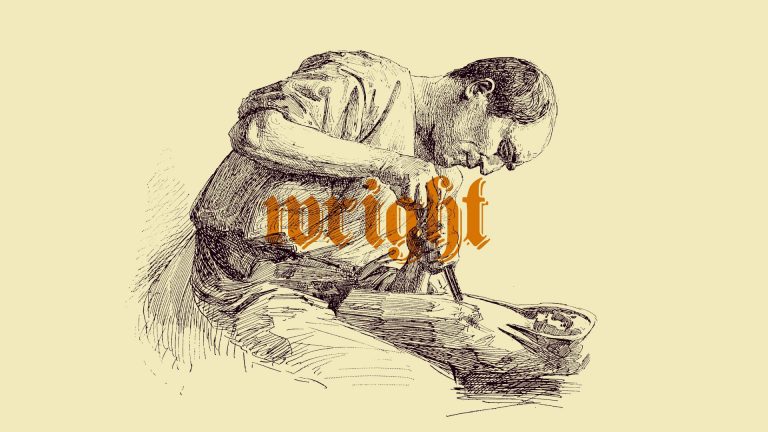The name of the midwestern American state of Illinois presents a bit of a puzzle: why is it spelt in that way, and how should it be pronounced?
When encountering the state’s name for the first time, many people from this side of the Atlantic who have studied some French might well assume that it should be pronounced “Illinwa”, following the norms of Modern French spelling and pronunciation. The –ois ending does, after all, make the name look like a normal, everyday French word ending in a syllable that should be pronounced “wa”, as in common French words such as bois “wood”, pois “pea”, and fois “time, occasion”.
In fact, however, the accepted pronunciation of the state’s name as used by Americans today is “Illinoy”, ending with the oy vowel sound found in toy, boy and with the s unsounded. The oy diphthong has obviously become the norm because of the influence of the English spelling system.
Spelling-influenced pronunciation is also the explanation for the name of the city of Detroit being said “De-troyt”. This city is named after the Detroit River, which was called le détroit du Lac Érié by French explorers, meaning “the strait of Lake Erie”. The French noun détroit (pronounced “dé-trwa”) translates as “strait, narrows” and derives from the adjective étroit which signifies “narrow, close, tight”.
In order to comprehend the origin of these particular pronunciation oddities, we need to know that the region which contains what is now Illinois, after millennia of habitation by native Americans, was colonised by French speakers who started arriving from Europe during the 1600s. Their 17th-century French pronunciation was taken across the Atlantic Ocean from northern and western France to North America, first to Quebec and then subsequently down the rivers to the northern USA.
Suggested Reading


The wright way to signify your trade
As always happens with all languages, the pronunciation of the French language has changed rather considerably since these hunters, trappers, explorers, missionaries and, ultimately, settlers from France first arrived in the American Midwest.
For example, the two-letter sequence oi was originally pronounced in French just as the spelling indicates, so as to rhyme with English toy. But over the decades the oi diphthong changed to “oo-i”, and from that to wi, with the emphasis shifting from the second to the first part of the diphthong. Then the wi changed to weh, and subsequently to wa.
Why did this happen? When asked this question, linguistic scientists usually end up replying that languages are just like that – they change through time because it is in their nature to do so.
Much of French settlement by Francophone speakers took place during the period when any French words spelt in ois would have been pronounced “weh”, so Illinois was pronounced “Illinweh” during that period. And indeed the original indigenous name of the local Algonquian tribal confederation living in the region which is now Illinois was Ilinwe.
Numerous cities and towns in the state carry French-based names, including those of early French explorers such as Joliet, La Salle and Marquette, as well as descriptive names like Des Plaines and Creve Coeur “heart break”. And Illinois is known as The Prairie State, with prairie being the French word for “meadow”.
Strait
The word strait refers to a narrow passage of water which connects two larger bodies of water. It comes from Anglo-French estreit, estrait “narrow part, pass, defile, narrow passage of water”. This is turn goes back to Latin strictus, the past participle of the verb stringĕre “to tighten, bind tightly”; this has also given us the word stringent, which in the case of regulations, requirements, or conditions signifies “strict, precise, exacting”.




